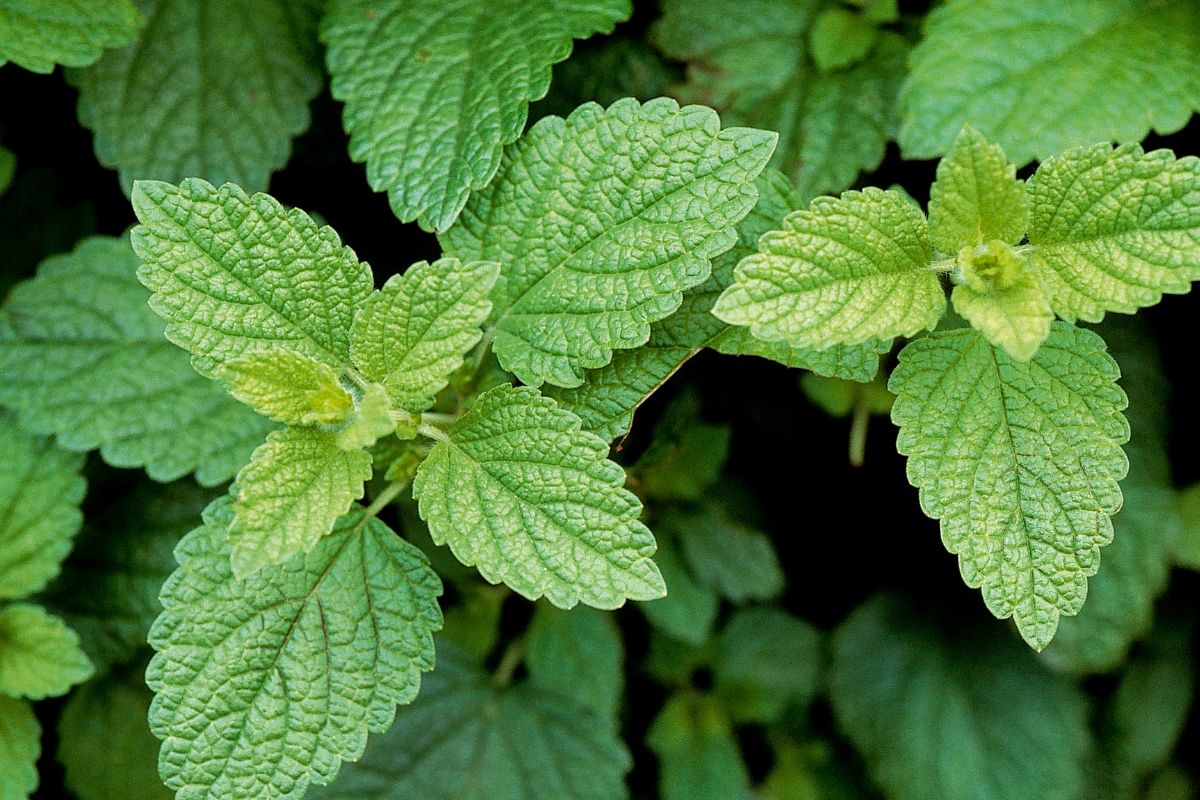If you’ve ever had a cup of lemon balm tea after a stressful day, you know how powerful this little plant can be. But do you really know all the benefits it offers? If the answer is “no,” don’t worry, because today we’re diving into everything about this amazing herb. And if you’re already a fan of lemon balm, get ready to love it even more!
Lemon balm, also known as Melissa officinalis, has been used for centuries in natural medicine due to its relaxing and healing properties. Since ancient times, civilizations like the Greeks and Romans have used it to relieve tension, treat digestive problems, and even promote longevity. Its popularity spread worldwide, and today, besides being one of the most commonly consumed herbal teas, it is also used in aromatherapy, essential oils, and even cosmetics.
What makes lemon balm so special are its bioactive compounds, such as flavonoids, phenolic acids, and tannins, which have antioxidant, antiviral, and anti-inflammatory properties. This means that, in addition to promoting relaxation, it can also help strengthen the immune system and protect the body against various diseases. Want to learn how to make the most of these benefits? Then keep reading!
What is Lemon Balm?
Lemon balm (Melissa officinalis) is a medicinal plant belonging to the Lamiaceae family, the same as mint. Its main characteristic is its citrusy, refreshing aroma, reminiscent of lemon, making it one of the most appreciated herbs in the world of herbal medicine. This special fragrance comes from volatile compounds like citral and geraniol, which also contribute to its therapeutic properties.
Originally from the Mediterranean region and West Asia, lemon balm has spread worldwide due to its easy cultivation and numerous health benefits. Today, it can be found in gardens, home planters, and even indoor pots, as it thrives in both fertile soils and controlled environments. Its simple maintenance makes it an accessible option for those who want a natural source of well-being at their fingertips.
Beyond traditional medicine, lemon balm also plays an important role in gastronomy and cosmetics. Its leaves can be used in teas, juices, salads, and desserts, adding a refreshing touch to dishes. In the world of natural cosmetics, it is incorporated into creams, soaps, and lotions due to its skin-soothing properties and antioxidant effects, which help combat premature aging.
Another interesting fact is that lemon balm has been scientifically studied for its effects on the nervous system. Research suggests that its active compounds modulate neurotransmitters like GABA (gamma-aminobutyric acid), promoting relaxation and well-being. This explains why it is so effective in reducing anxiety, stress, and insomnia. With so many applications and benefits, it’s no wonder this herb is a favorite among natural therapy enthusiasts!
What is Lemon Balm Good For?
If you think lemon balm is only good for a relaxing tea before bed, think again! This herb offers a long list of benefits:
1. Reduces Anxiety and Stress
Who hasn’t had one of those days where everything seems to go wrong? Lemon balm can be an amazing ally in such moments. It has calming properties that help naturally reduce stress and anxiety. In fact, some studies suggest that regular consumption can improve mood and mental clarity.
2. Improves Sleep
If you have trouble sleeping, drinking lemon balm tea before bed can be a great solution. The herb helps relax the body and mind, making it easier to have a peaceful and restorative night’s sleep.
3. Supports Digestive Health
That uncomfortable bloated feeling or stomach ache after a heavy meal? Lemon balm has digestive properties that help relieve gastrointestinal discomforts like gas and cramps. It may also help treat irritable bowel syndrome (IBS).
4. Antioxidant and Antiviral Action
Lemon balm is rich in antioxidants, which help protect body cells from damage caused by free radicals. Additionally, studies indicate that it has antiviral properties, making it effective against viruses like herpes.
How to Use Lemon Balm for Health and Well-being
Now that we know what lemon balm is good for, let’s talk about how to use it daily! There are several ways to enjoy its benefits beyond traditional tea.
1. Lemon Balm Tea
This is the most popular way to consume it. Here’s how to prepare it:
- Boil 250 ml of water.
- Add a tablespoon of dried leaves or a few fresh leaves.
- Cover the cup and wait about 10 minutes for the infusion to extract all the herb’s benefits.
- Strain and drink warm or hot.
Extra tip: To enhance the calming effect, add chamomile or passionflower to the infusion.
2. Lemon Balm Essential Oil
This herb’s essential oil can be used in aromatherapy to reduce stress and improve mood. Just add a few drops to a diffuser or dilute it in a carrier oil for relaxing massages.
3. Lemon Balm Tincture
The tincture is a concentrated alternative that can be taken diluted in water. It’s a practical option for those who want the benefits of lemon balm without having to prepare tea daily.
4. Culinary Uses
Lemon balm can be used to add a special touch to salads, desserts, and even natural juices. Try blending some fresh leaves with lemon and ginger for a delicious detox juice!
Scientific Studies on Lemon Balm
Recent studies show that lemon balm has significant effects on the central nervous system. Research published in the Journal of Ethnopharmacology found that its bioactive compounds help reduce cortisol, the stress hormone, promoting relaxation and well-being. Another study conducted by the University of Melbourne found that regular consumption of lemon balm extract can improve memory and cognitive function, making it a potential ally in combating neurodegenerative diseases like Alzheimer’s.
Lemon Balm’s Role in Well-being
Lemon balm is a true ally for health and well-being. Its relaxing, digestive, and antioxidant effects make it one of the most versatile and accessible medicinal plants. Whether for a moment of tranquility at the end of the day or as natural support for health, incorporating it into your routine can bring numerous benefits.
Additionally, its use goes far beyond traditional tea. Its essential oil, tincture, and even culinary applications demonstrate how this herb can be enjoyed in many ways. Science continues to explore its effects, and more studies are reinforcing its effectiveness in supporting the nervous and digestive systems.
Have you ever tried lemon balm? Share your experiences, recipes, and tips in the comments! Let’s exchange knowledge about this wonderful gift from nat
Lemon balm is known for its many health benefits, from reducing stress to improving digestion. If you want to learn more about its properties and uses, check out this comprehensive article from Mount Sinai:

Sam Bright is a passionate researcher of the power of medicinal plants and their benefits for health and well-being. With years of study and practice in the use of therapeutic herbs, he is dedicated to sharing accessible, evidence-based knowledge on how nature can support health holistically.
Through his blog, Sam explores everything from the traditional uses of plants to modern scientific discoveries, always with a practical and informative approach. His goal is to help people integrate herbal medicine into their daily lives in a safe and effective way.

